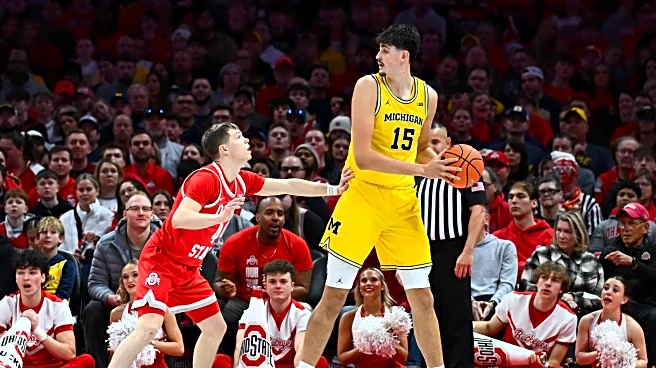What's Happening?
Nike is implementing layoffs affecting less than 1% of its corporate team as part of a strategic realignment under CEO Elliott Hill. Since assuming leadership in October last year, Hill has initiated several structural changes, including organizing teams around key sports rather than traditional categories such as women's, men's, and kids'. This shift aims to place sport and sport culture at the forefront, enhancing connections with athletes and consumers. The realignment follows previous layoffs, including tech employees in May and over 1,600 employees at the start of 2024. Hill's leadership has also seen changes in Nike's executive team, with departures and returns of long-time executives.
Why It's Important?
The layoffs and strategic shifts at Nike are significant as they reflect the company's efforts to address declining sales and improve relationships with wholesale partners. The move away from a direct-to-consumer (DTC) strategy, which had left some partners feeling neglected, is part of Hill's plan to stabilize Nike's market position. By focusing on key sports, Nike aims to strengthen its brand identity and consumer engagement, potentially leading to increased sales and market share. The restructuring could impact stakeholders, including employees, retail partners, and consumers, as Nike seeks to navigate the competitive landscape of the activewear industry.
What's Next?
Nike's ongoing realignment may lead to further organizational changes as the company continues to adapt to market demands. Stakeholders, including retail partners and consumers, will likely monitor Nike's progress in restoring key footwear franchises like Dunk and Air Force 1. The company's ability to successfully implement its new strategy and improve sales will be crucial in determining its future trajectory. Additionally, further adjustments to the leadership team and corporate structure may occur as Nike seeks to optimize its operations and maintain its competitive edge.











